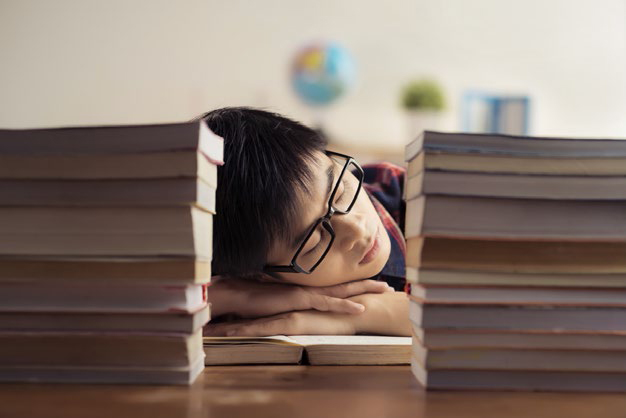
High school students who began classes roughly an hour later than students at neighboring schools slept an average of 43 minutes more per night, according to a study funded by the Eunice Kennedy Shriver National Institute of Child Health and Human Development (NICHD), part of the National Institutes of Health. The study authors wrote that the later morning start times accommodated the teens’ natural sleep period, which begins about two hours later than that of younger children. Teens at the late-starting schools also slept less on weekend nights than their counterparts at early schools, suggesting that they had less need to compensate for missed sleep on school nights.
The study was led by Rachel Widome, Ph.D., of the University of Minnesota School of Public Health in Minneapolis. It appears in JAMA Pediatrics.
Background
Although 8 to 10 hours of sleep per night is recommended for adolescents, more than half of 16-year-olds regularly get less than 7 hours sleep, the study authors noted. Sleep debt—the difference between the amount of sleep needed and the amount obtained—is associated with a higher risk of type 2 diabetes, high blood pressure, and injury.
Physiological changes that occur in adolescence delay the onset of sleep more than two hours than for younger children, making it difficult for teens to fall asleep before 11 p.m. and to wake up before 8 a.m. Despite public health recommendations that high schools start at 8:30 a.m. or later, fewer than 15% of U.S. high schools do so, and 42% start at 8 a.m. or earlier. A few studies have suggested that earlier school start times are associated with improvements in teen driving safety, academic achievement, mental health, and school attendance.
The current study coincided with a change in start times for two schools in the Minneapolis and St. Paul area. The schools switched from 7:30 and 7:45 a.m. to 8:20 and 8:50 a.m. start times, respectively. Three other area schools maintained a 7:30 a.m. start time. The researchers enrolled 9th grade students at the five schools and documented their sleep habits through 11th grade.
To record their sleep times, all the students wore a wrist actigraph unit—a wristwatch-like device that documents sleep periods by collecting data on light and movement. They also entered in a sleep log the times they went to and rose from bed.
Results
Of the 455 students who completed the study, 214 attended the delayed start schools and 241 attended the early start schools.
By 10th grade, students at the delayed schools had an average of 41 minutes more sleep per night than students at the early schools. By 11th grade, the delayed students had an average of 43 minutes more sleep per night. Delayed students did not fall asleep any later, on average, than the early students.
By 10th grade, delayed students slept an average of 24 minutes less on weekend nights than the early students, suggesting that the early students had a greater need to catch up on sleep missed during the school week. Similarly, by 11th grade, delayed students slept an average of 34 minutes less on weekend nights.
Significance
The authors concluded that delayed school start time could help to improve sleep deficiency among adolescents.
Next Steps
The authors called for additional research to determine if the additional sleep resulting from delayed school start times might have additional benefits for adolescent driving safety, academic performance, mental health, school attendance, and obesity.
Reference
Widome, R, et al. Association of Delaying School Start Time With Sleep Duration, Timing, and Quality Among Adolescents. JAMA Pediatrics.2020.

 BACK TO TOP
BACK TO TOP